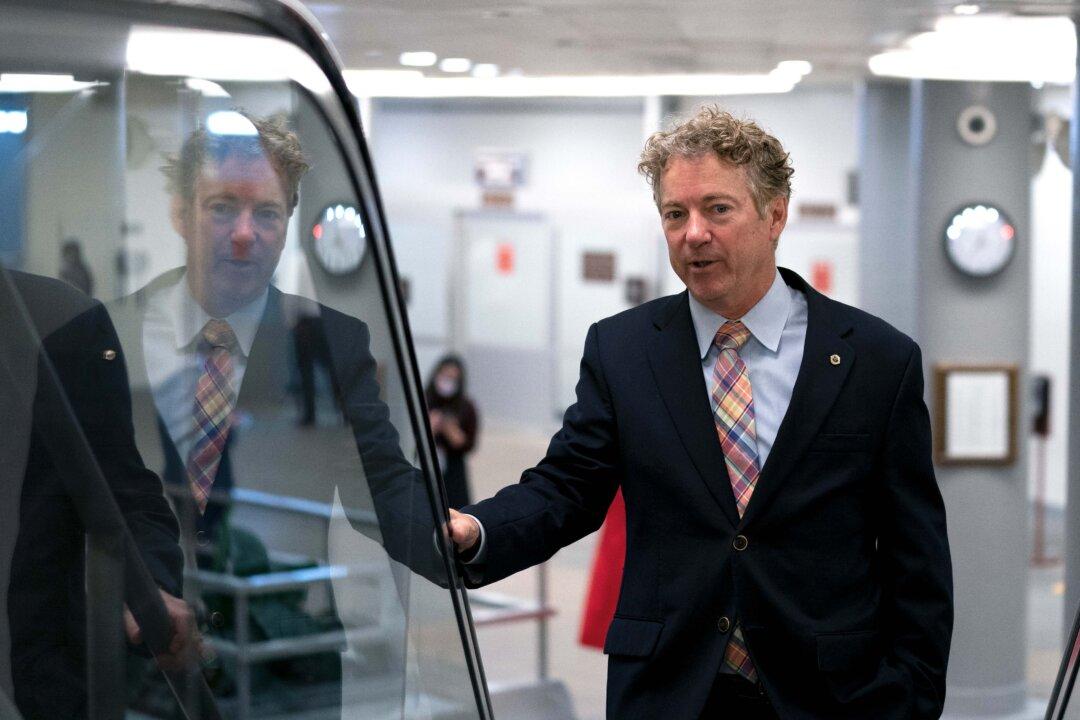Sen. Rand Paul (R-Ky.) in a Senate floor speech Monday tore into fellow Republicans as they prepared vote on the $900 billion COVID-19 relief bill that was later passed by Congress following months of negotiations.
Addressing the Senate on Monday afternoon, Paul said that fellow Republicans who back the COVID-19 relief package while pointing out “the socialism of Democrats,” are no better than those they criticize.





